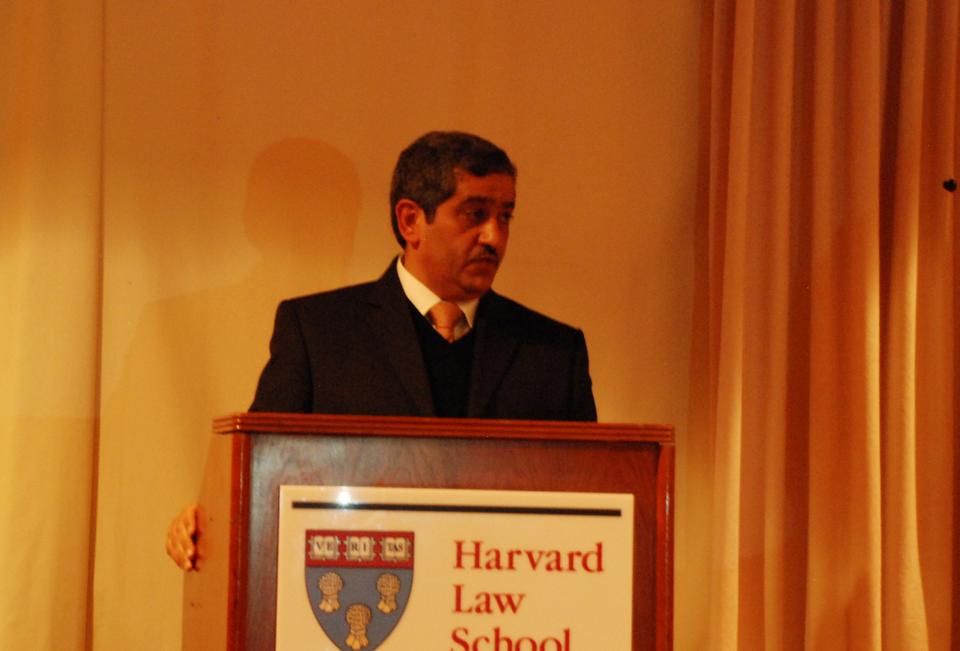
News
When Professors Speak Out, Some Students Stay Quiet. Can Harvard Keep Everyone Talking?

News
Allston Residents, Elected Officials Ask for More Benefits from Harvard’s 10-Year Plan

News
Nobel Laureate Claudia Goldin Warns of Federal Data Misuse at IOP Forum

News
Woman Rescued from Freezing Charles River, Transported to Hospital with Serious Injuries

News
Harvard Researchers Develop New Technology to Map Neural Connections
At HLS, Editor Calls For Freedom in Bahrain

Bahraini newspaper editor Mansoor al-Jamri called for freedom of the press and human rights in Bahrain following the recent release of an independent report that accuses Bahrain’s government of torturing protestors and dissidents earlier this year.
Al-Jamri, who spoke at Harvard Law School on Monday, is the co-founder and editor of Bahrain’s only independent newspaper Al Wasat, which was temporarily shut down by the regime of King Hamad bin Isa Al Khalifa.
“The people saw hell,” said al-Jamri, referring to the government crackdown between March and August 2011 in which dozens of Bahrainis were killed and hundreds were imprisoned. The protests arose in a wave of unrest sparked by the Arab Spring movement across the Middle East.
Al-Jamri alleged that the regime targeted his newspaper in particular. According to al-Jamri, armed men vandalized his presses and the government planted false stories in his paper, enabling authorities to later accuse him of inciting Bahrain’s Shiite Muslim majority to rise up against the Sunni royal family.
Al-Jamri said that the violent repression of protests follows a long period of gradual democratic reform in the country.
“Bahrain is a lost opportunity,” he said, citing what he believes was the regime’s failure to work with moderate reformers who want to overcome religious inequality in the kingdom. “People don’t want to be treated as second class citizens, or as first class citizens while others are dying.”
Al-Jamri said he remains ambivalent about Bahrain’s democratic aspirations, but that he maintains he a clear vision for the future of the island nation. “We want a state where every citizen—Christian, Jew, or Muslim—is equal before the law.” Not all the audience members agreed with al-Jamri’s assessment of the situation.
Hadyah Fathalla, a first year MPA at the Kennedy School and a native of Bahrain, said she felt his representation was one-sided.
“He didn’t offer a balanced view,” she said. “In the future, it would be valuable to have a dialogue with someone who disagrees with [al-Jamri’s] views.”
Kennedy School research fellow Noora Lori, also a native of Bahrain, said that the lively debate during the event gave her “a sense of how passionate people are and how invested people are.”
“That says something about the Bahraini people,” she said.
Want to keep up with breaking news? Subscribe to our email newsletter.
